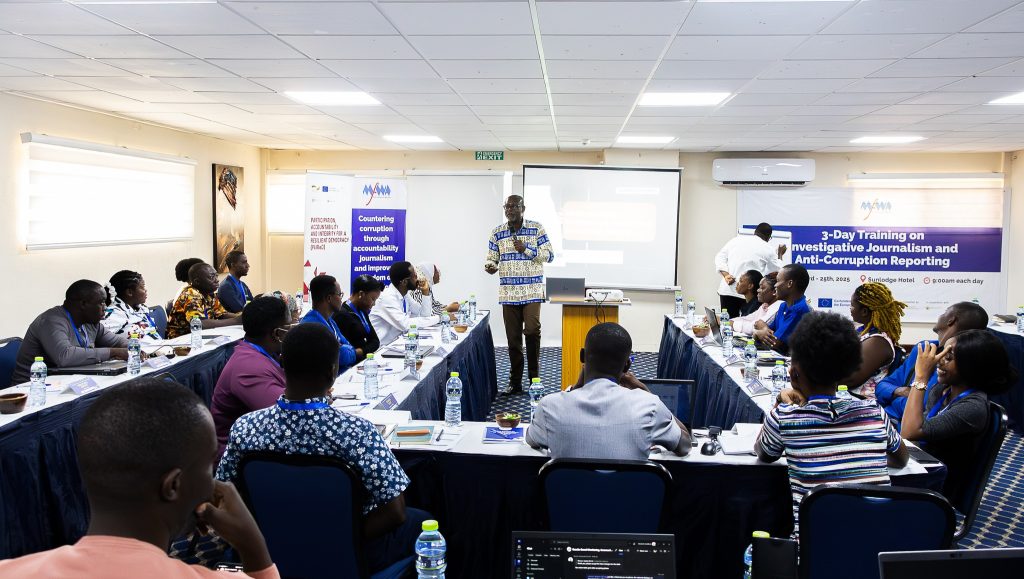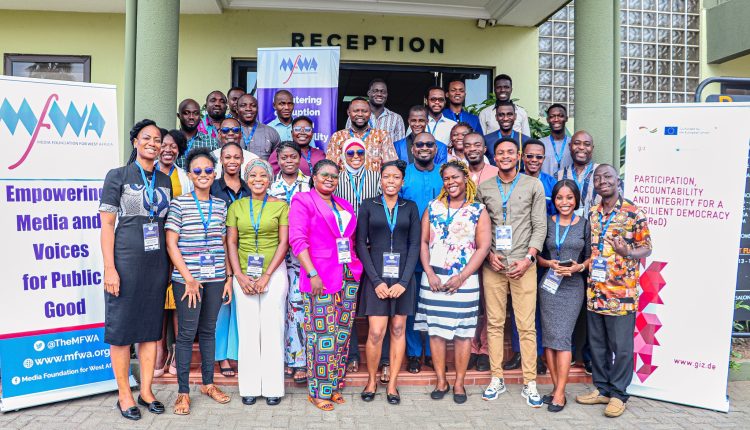The Media Foundation for West Africa (MFWA), with funding support from GIZ, has successfully organised a three-day intensive training workshop on investigative journalism and anti-corruption reporting.
The workshop brought together 30 journalists from across Ghana, equipping them with practical skills, ethical guidance, and innovative tools to strengthen their watchdog role in society.
Facilitators included seasoned investigative journalists, media trainers, and anti-corruption experts who shared real-world insights and strategies. They emphasized the importance of empowering journalists with the right tools to hold power to account, describing such initiatives as essential for strengthening democracy.
Participants described the training as highly impactful, noting that it sharpened their investigative skills and deepened their commitment to promoting transparency and accountability.
An investigative reporter from ZAA Multimedia in Tamale, Alidu Isaiah, expressed optimism about the impact of the training:

“I’ve just concluded a powerful three-day training on investigative journalism and anti-corruption. The experience was eye-opening and deeply impactful, equipping me with sharper tools and renewed courage to pursue truth, accountability, and transparency. As journalists, our duty is not only to inform but also to uncover, challenge, and inspire change. This training has strengthened my resolve to shine light where shadows fall and to add greater value to my work — for the people, for justice, and for a more accountable society.”
Independent journalist and gender advocate, Theresa Weyerane Adiali, highlighted the broader perspective the training provided:
“The training was impressive as it not only exposed us to how corruption impacts women, children, and grassroots people, but it also went beyond sharpening professional skills. It challenged journalists to rethink how we understand and report on corruption, while stressing the often-overlooked importance of mental health and psychosocial support. For me, the biggest takeaway was that effective journalism isn’t just about holding power accountable; it also requires newsrooms and journalists themselves to prioritize mental wellness and develop emotional intelligence if we want to sustain the quality and integrity of our work.”
From the Upper West Region, Bashiru Nuhu Bapagu of Radford 107.5 FM, Tumu, also shared his excitement:
“This training has broadened my perspective on investigative reporting and empowered me to contribute meaningfully to the fight against corruption.”
The training concluded with a call for stronger collaboration among journalists, civil society actors, and state institutions to sustain the fight against corruption and uphold democratic governance.
Source: Alidu Isaiah/zaaghana.com


